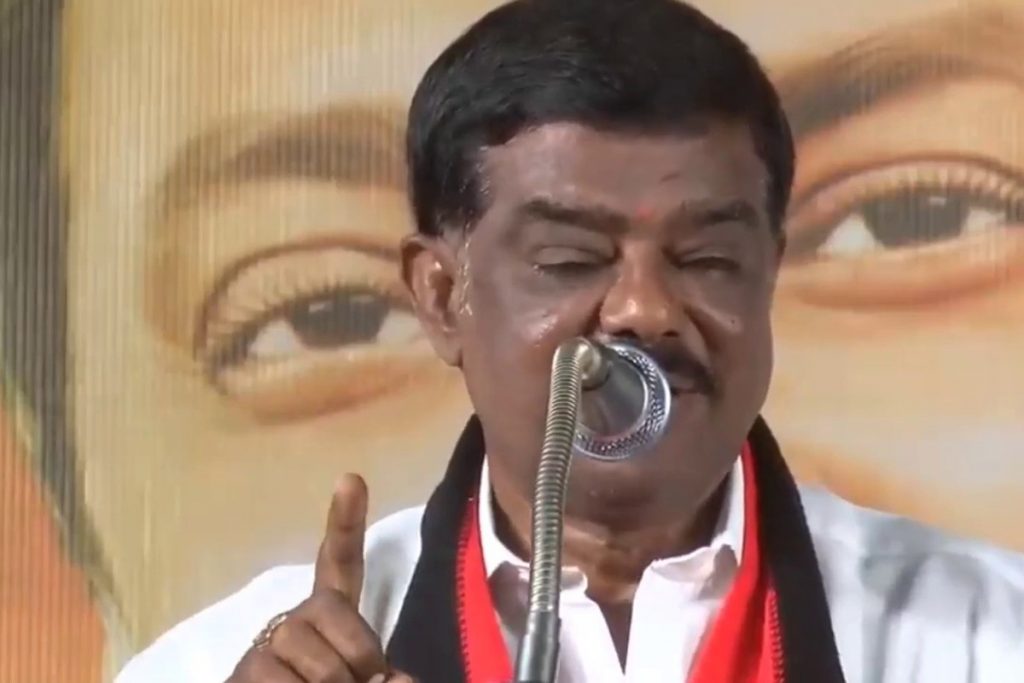The misuse of laws relating to criminal and civil defamation have become a talking point in the society as it is allegedly being selectively used against those leaders who raised questions with regard to crucial decisions about the affairs of the government, writes Mudit Mathur
The Constitution of India guarantees free speech and expression to be a fundamental right of every citizen which is not absolute but subject to certain reasonable restrictions; defamation being one of them. The recent political developments slapping criminal defamation cases on prominent politicians and journalists allegedly, as a tool to muzzle dissent and obstructing them from raising uncomfortable questions before the political leadership. This has reignited debate among legal fraternity to redefine and reform the scope of criminal defamation as reasonable restriction vis-à-vis constitutional guarantee of freedom of speech and expression in the light of Subramanian Swamy versus Union of India with special reference to Shreya Singhal’s case.
Whether it is the filing of Strategic Lawsuits against Public Participation (SLAPP) or other cases on infringement of private or public rights, defamation is adopted in defence as a matter of prerogative and that being right to reputation. Therefore, legal circles felt that it becomes imperative to re-examine these issues in the light of the judgement delivered so that clouds of doubt go away and give vent to an informed consensus on the issue of defamation.
Shreya Singhal’s case is a landmark judgement in the field of freedom of speech and expression. This landmark case brings forth various dimensions which are important facets of article 19(a). Section 66A which was widely criticised for its over breadth, vagueness and its chilling effect on speech was struck down by the apex court as it was unconstitutional. Regarding over breadth, apex court opined that the net cast by section 66A was so wide that virtually it covered any opinion on any subject. Nariman J’s opinion has highlighted that the liberty of thought and expression is not merely an aspirational ideal. It is also “a cardinal value that is of paramount significance under our constitutional scheme.”
On the purported justification offered by the state on grounds of defamation, incitement to an offence, and decency or morality, under article 19(2), the Supreme Court, ruled it as pithily dismissive. The court pointed out that there was no nexus whatsoever between the criminalisation of “grossly offensive” or “annoying” speech and the restrictions permitted under the constitution were self-evident.
But examining the constitutional validity of Section 499 and 500 of the Indian Penal Code, 1860, constituting defamation as an offence in the case of Subramanian Swamy vs Union of India (2016) 7 SCC 221, it was held that, “though right to freedom of speech and expression is a highly valued and cherished right but the constitution itself conceives of reasonable restrictions and Sections 499 and 500 of the IPC cannot be characterized as disproportionate restriction on free speech. Right to free speech was held to be not meaning that a citizen can defame others. Protection of reputation was also held to be a human and fundamental right, serving a social interest. “However, in Swamy’s case, Mishra J takes a different route and points out that there is a difference in the canvas on which the Shreya Singhal’s case has been made.

In a significant judgement of Delhi High Court protecting a news channel from civil defamation charges for telecasting a sting operation exposing milk adulteration racket in its “Satyamev Jayate” programme, observed, “Though the press and the media are not exempt or always protected from the general law relating to defamation but it is to be kept in mind that defamation law is not to be used to gag, silence, suppress and subjugate press and the media. It cannot be forgotten that the law of defamation has potential to be an unreasonable restriction on the freedom of speech and expression guaranteed by the Constitution of India and the courts owe a duty to ensure that the law of defamation is not so exploited.”
The Supreme Court has always upheld freedom of speech and expression right from 1950 in Romesh Thappar Vs State of Madras, Brij Bhushan Vs. State of Delhi and Sakal Papers (P) Ltd. Vs. The Union of India (1962) and Indian Express Newspapers (Bombay) Private Ltd. Vs. Union of India (1985). It was held that in today’s free world, freedom of press is the heart of social and political intercourse; the press has now assumed the role of the public educator; the purpose of the press is to advance the public interest by publishing facts and opinions without which a democratic electorate cannot make responsible judgments; the authors have to be critical of the actions of the government in order to expose its weaknesses. Such publications become an irritant or even a threat to power and the governments naturally take recourse to suppress such publications in different ways but it is the primary duty of all the national courts to uphold the said freedom and invalidate all laws or administrative actions which interfere with it, contrary to the constitutional mandate.
In the light of such landmark jurisprudence, the recent disturbing trend of weaponizing criminal defamation cases on various leaders of opposition, allegedly, targeting prominent leaders of opposition parties creates chilling effect on the society at large for ventilating their views on various actions and policies of the government concerning public at large, thereby hampering democratic atmosphere required for a healthy public discourse– which is a basic feature and constitutional mandate for the survival of a vibrant and participatory democracy.
The misuse of laws relating to criminal and civil defamation have become talking point in the society as it is being selectively used against those leaders who raised questions with regard to crucial decisions about the affairs of the government. Congress leader Rahul Gandhi stood convicted and sentenced to two years imprisonment in a criminal defamation case registered in Surat, Gujarat, over his controversial comments during general election campaigning in Kolar, Karnataka, in 2019, about fugitive scamsters Lalit Modi and Nirav Modi. “How come all thieves have Modi as the common surname?,” he had said allegedly targeting Prime Minister’s Modi community. He lost appeal before the session Judge who upheld his conviction and quantum sentence. Now, he is likely to file a writ petition before the High Court of Gujarat. Rahul Gandhi was disqualified as a member of Lok Sabha in view of his conviction.
Expressing his solidarity with Rahul Gandhi, the Aam Admi Party president and Delhi chief minister Arvind Kejriwal accused the government of conspiring to “eliminate” non-BJP parties and leaders by prosecuting them.We have differences with the Congress, but it is not right to implicate Rahul Gandhi in a defamation case like this. “It is the job of the public and the opposition to ask questions. We respect the court but disagree with the decision,” Kejriwal said in a tweet in Hindi. AAP Rajya Sabha MP Raghav Chadha said opposition forms the core of democracy and dissent should not be stifled.
The Gujarat High Court overturned a seven-year-old ruling by the Central Information Commission (CIC) that instructed Gujarat University to disclose information on Prime Minister Narendra Modi’s degree to Delhi Chief Minister Arvind Kejriwal. Allowing the Gujarat University’s appeal against the CIC order dated 29th April, 2016, Justice Biren Vaishnav also imposed a cost of Rs 25,000 on Kejriwal and asked him to deposit the amount within four weeks to the Gujarat State Legal Services Authority (GSLSA).The Aam Aadmi Party (AAP) said it would appeal against the order in the division bench.
“With this judgement, citizens have lost their right to seek information about the PM’s degrees. The cost imposed on Kejriwal, who was a respondent in this case, also came as a surprise for us,” said AAP Gujarat’s legal cell president Pranav Thakkar. In April 2016, the then CIC M Sridhar Acharyulu had directed the Delhi University and the Gujarat University to provide information to Kejriwal on the degrees that Modi had received.Three months later, the Gujarat High Court stayed the CIC order after the varsity approached it against that order.
The judgement of Gujarat High Court invoked mixed reactions and opinions across the political spectrum that culminated in slapping a criminal defamation case against Arvind Kejriwal and AAP’s Rajya Sabha member Sanjay Singh by Gujarat University registrar Piyush Patel for their alleged sarcastic and derogatory statements against the university. The court of Additional Chief Metropolitan Magistrate, Ahmedabad, Jayeshbhai Chovatiya has issued summons to Delhi Chief Minister Arvind Kejriwal in his personal capacity and Sanjay Singh in a criminal defamation case under Section 500 of IPC, related to issue of Prime Minister Narendra Modi’s academic degree on April 15 last.
The Delhi High Court on Tuesday summoned former Maharashtra Chief Minister Uddhav Thackeray, his son Aditya Thackeray and Rajya Sabha MP Sanjay Raut on a defamation suit filed by MP Rahul Ramesh Shewale for allegedly levelling frivolous corruption allegations against him and the Eknath Shinde-led Shiv Sena faction. Justice Prateek Jalan admitted the defamation suit and issued summons to Uddhav, Aditya and Raut. The High Court also asked Google, Twitter, Uddhav, Aditya and Raut to file their written statements within 30 days on the plea seeking removal of the alleged defamatory content from social media platforms.
Assam Chief Minister Himanta Biswa Sarma had threatened to file a defamation case against Delhi Chief Minister Arvind Kejriwal if the Aam Aadmi Party (AAP) leader alleges corruption cases against him outside the assembly. Kejriwal had reportedly said in the Delhi Assembly that there are cases against Sarma. “I wanted to sue him but like a coward, he spoke inside the assembly,” the Assam chief minister Sarma said. Last year, Sarma had filed criminal defamation case against AAP leader Manish Sisodia before Chief Judicial Magistrate, Kamrup over some allegations he levelled against him in a press conference. He went to the court for recording his statement.
A defamation case against DMK functionary for ridiculing TN Governor in a speech in the House. DMK functionary Shivaji Krishnamoorthy had made critical remarks against the Governor for skipping portions of the government-prepared address to the State Assembly. A Chennai City Public Prosecutor, had filed a criminal defamation complaint seeking to prosecute suspended DMK functionary Shivaji Krishnamoorthy, for his derogatory speech against Tamil Nadu Governor R N Ravi. The Public Prosecutor had moved the court after the State government accorded sanction.
Rashtriya Swayamsevak Sangh (RSS) leader Ram Madhav has sent a defamation notice to former Jammu and Kashmir governor Satya Pal Malik in response to his remarks during an interview where he alleged that Madhav attempted to influence him over a health insurance scheme deal involving a kickback of Rs 300 crore. Responding to Ram Madhav’s notice to sue for defamation, the former J&K governor Satya Pal Malik said that there was no question of him apologising to Madhav, instead he would send a written response to the notice. Malik added that someone may have “pressured him (Madhav) to send this notice”.
In October 2021, Malik claimed that a senior RSS functionary had offered him a bribe of Rs 300 crore to clear two files related to “Ambani” when he was the J&K governor. The Congress party held a press conference where they played up the interview and asked why the CBI or ED is not knocking at the doors of Ram Madhav following Satya Pal Malik’s allegations?
The apex court observed that fundamental rights and reasonable restrictions interact closely and should be tested on the anvil of the principle of proportionality. If a restriction is disproportional or excessive it defeats the purpose of the fundamental right and hence is ultra vires the Constitution. The law of defamation seeks to protect individual reputation. Its central problem is how to reconcile this purpose with the competing demands of free speech. Since both these interests are highly valued in our society, the former as perhaps the most dearly prized attribute of civilized human beings while the latter the very foundation of a democratic society.
A recent report by Common Cause and Lokniti-CSDS, based on a state-level survey, reveals, “nearly two out of three respondents are scared to post their political or social opinions for fear of legal action”. Today, Indians seem to have an intuitive understanding of the risks of voicing their opinions – they fear the letter of the law, in all its severity, will be weaponised against them and used as a tool to restrict their fundamental rights. Can reform on defamation be attempted in an environment of fear and social tensions?
A Supreme Court Advocate sums up the issue remarking, “We should worry about use of defamation law, beyond Rahul Gandhi case. The colonial era law can be used to restrict fundamental rights by the powerful. A reformed law is the need of the hour.”











